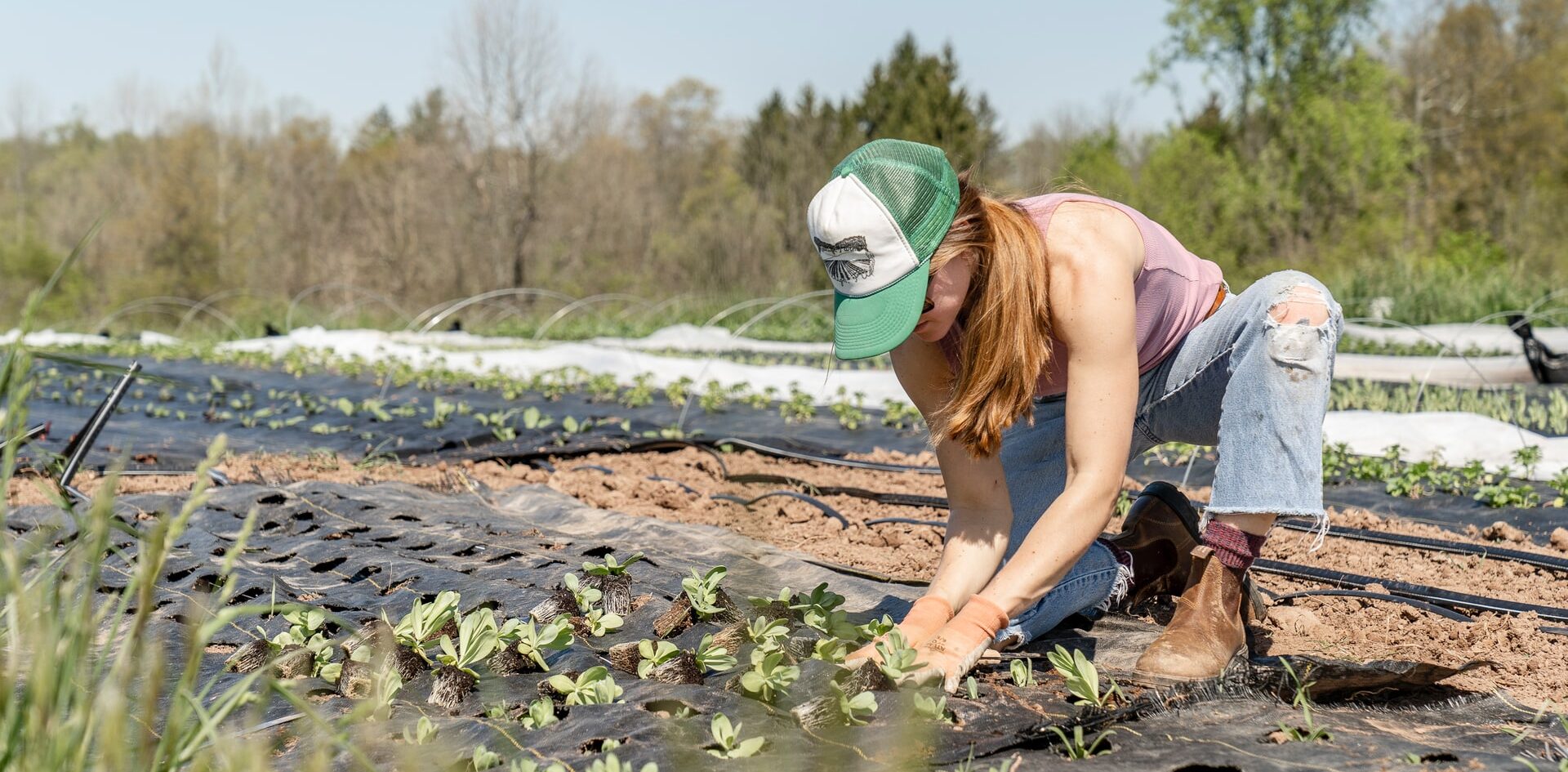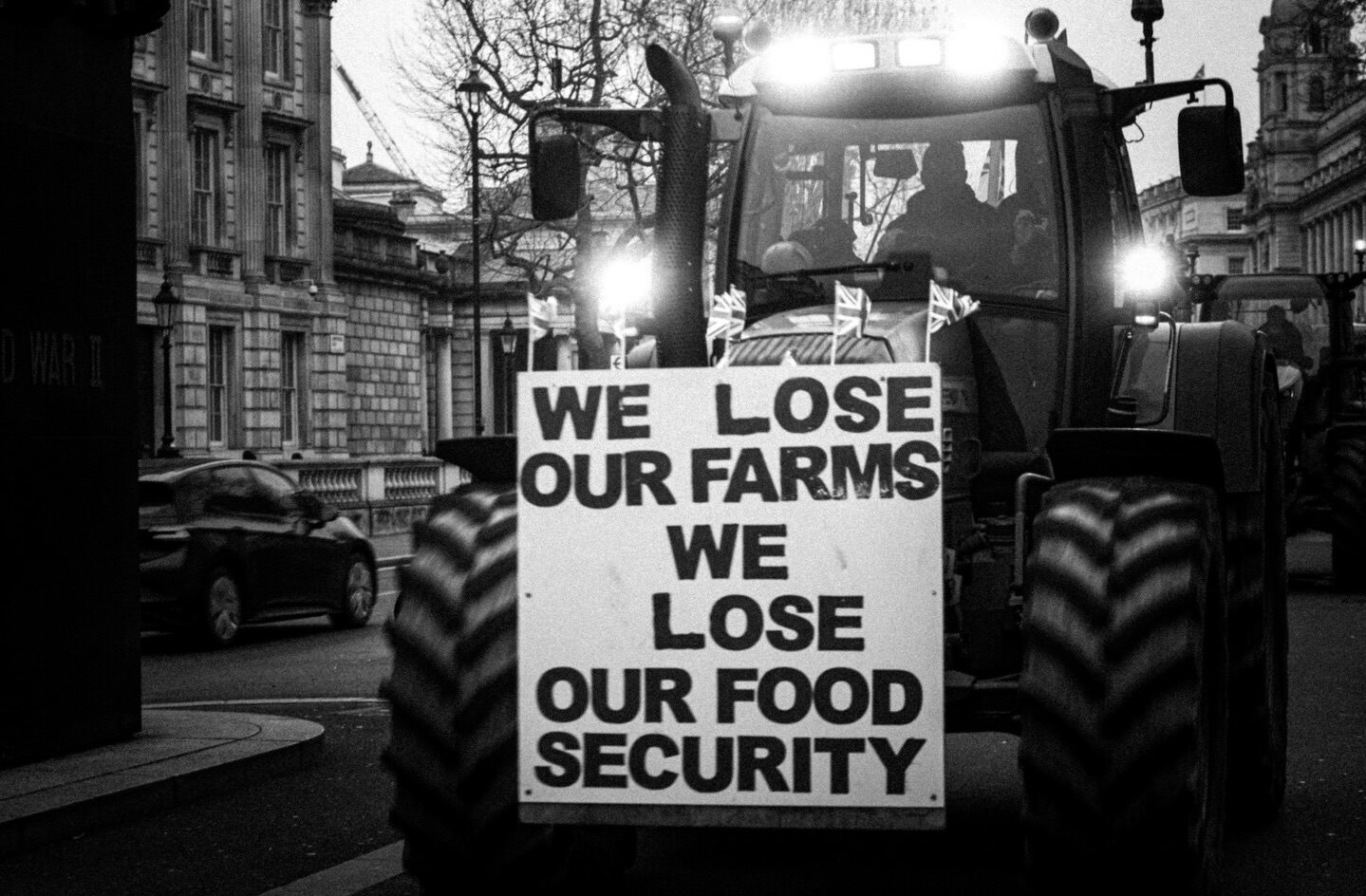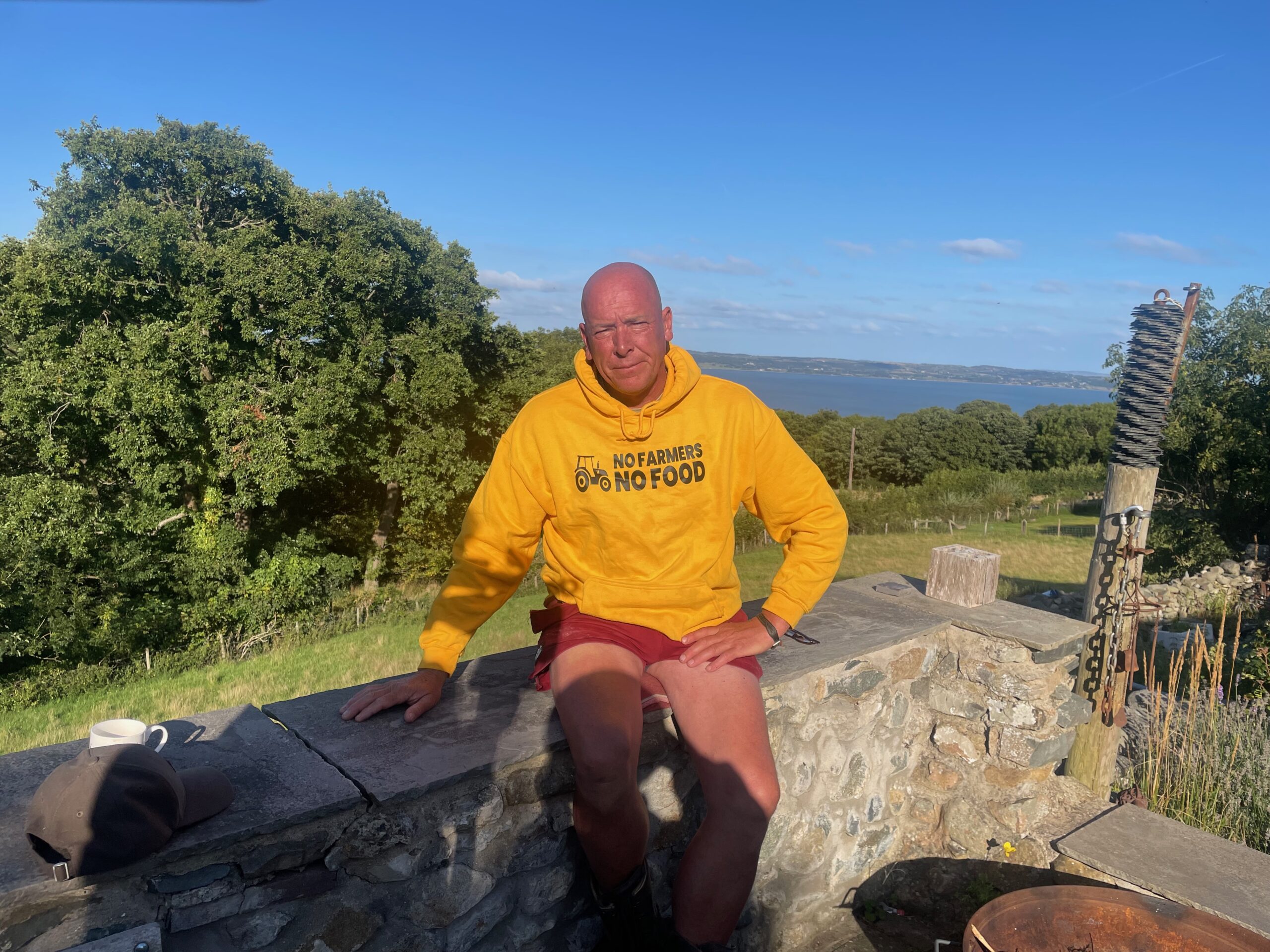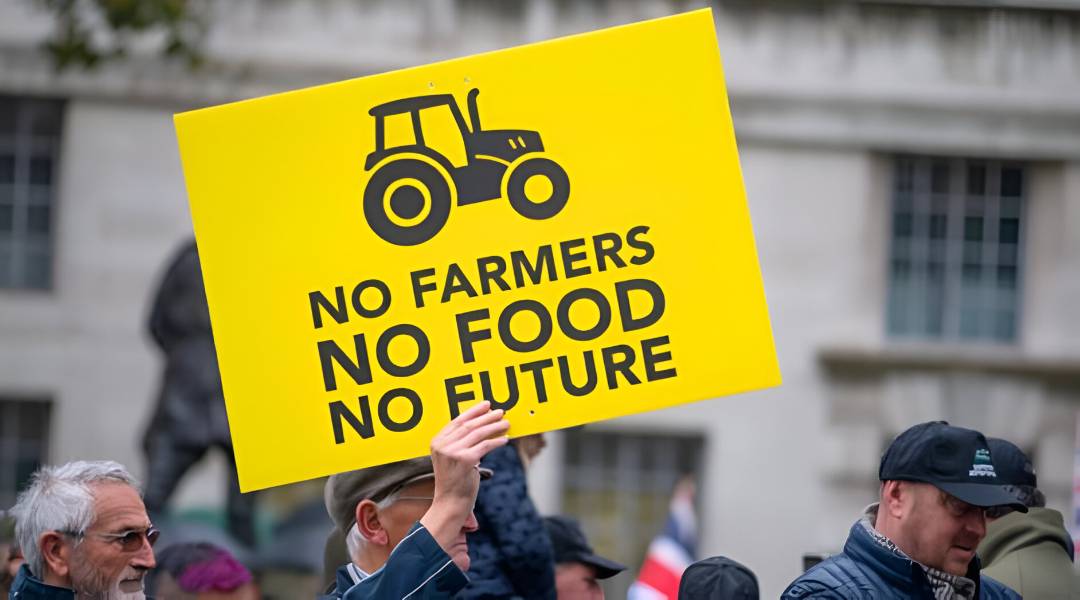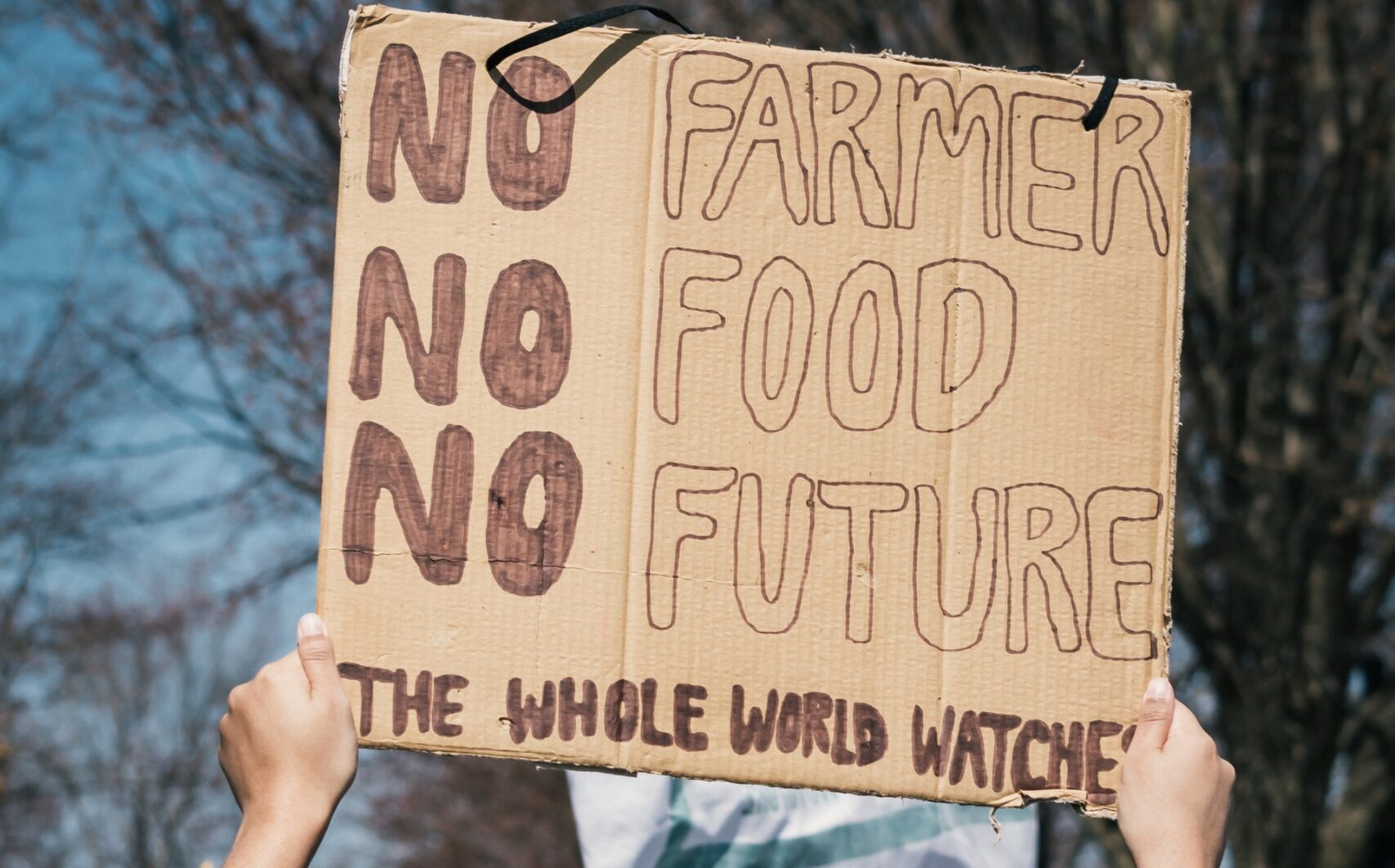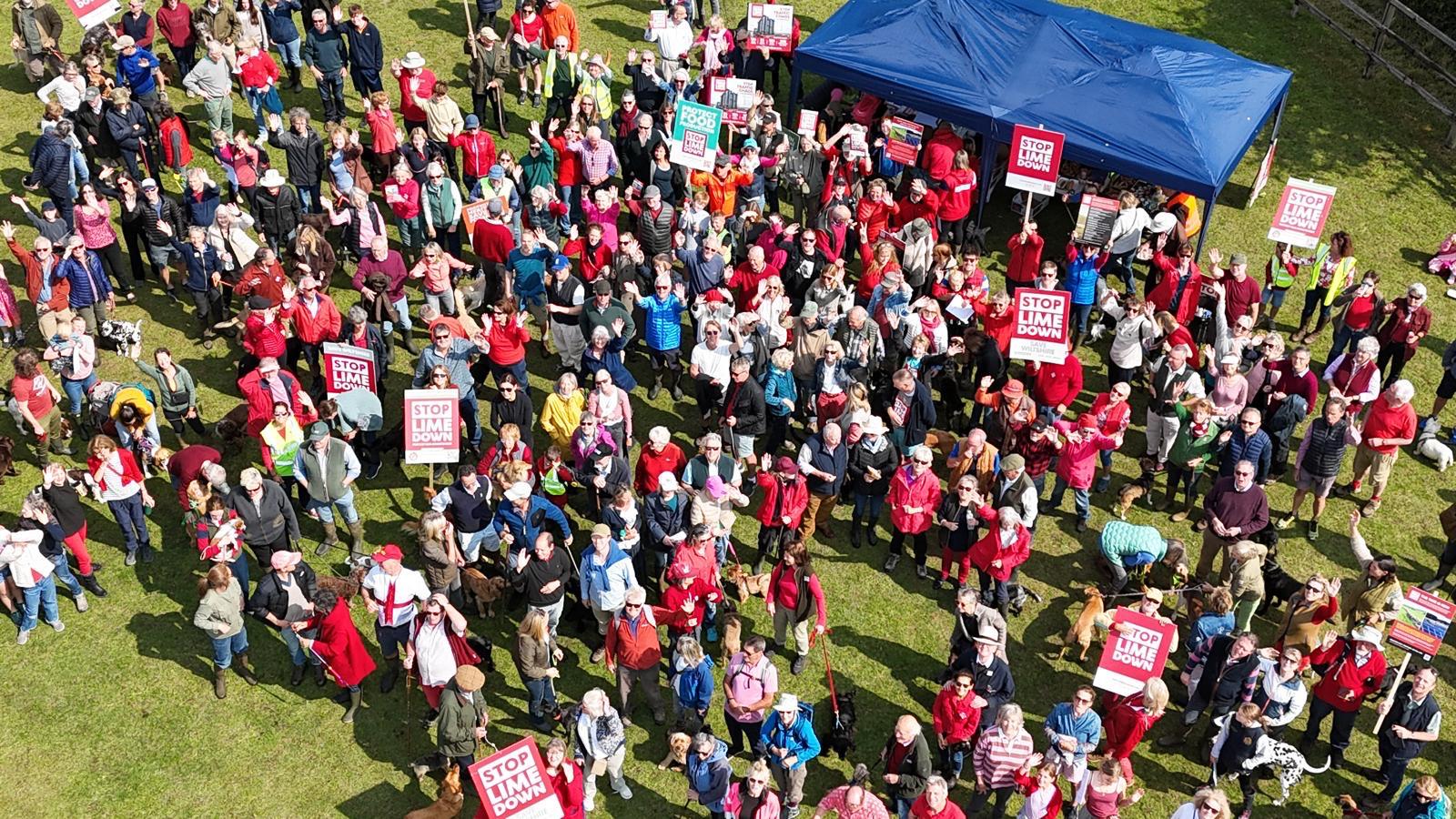Matthew Johnson, an activist for the campaign Direct Action Everywhere, became a hero in the struggle against factory pig farming after he appeared on Fox Business Live last December pretending to be the CEO of Smithfield, the world’s biggest pork producer. In the interview, impersonating CEO Dennis Organ, he said,
‘Our industry poses a serious threat in effectively bringing on the next pandemic, with CDC (Center for Disease Control) data showing that 3 to 4 infectious diseases come from animals in the conditions inside of our farms, can sometimes be petri-dishes for new diseases. Our farming also causes immense harm to our air and waterways.
‘In terms of the impact that this industry has on the world…we’re actually pledging now half a billion dollars a year starting in 2021 to mitigate some of these impacts.’
Fox Business Live then had to admit they had been pranked and apologised to the genuine Smithfield CEO, Dennis Organ and to viewers. Matthew Johnson was already being pursued under Iowa’s notorious ‘ag-gag’ laws that criminalise investigations into cruel, often illegal practices on factory farms in the state. A Circuit Court judge will decide soon whether the law to charge him can stand or whether it must be struck down as unconstitutional as it criminalises free speech.
Matthew has a history of revealing to the public the abuses and crimes of factory pig farming.
‘Investigators say surveillance video captured Johnson approach one of the buildings and try to pull a door to determine if it was locked before running away. Iowa Select Farms, one of the nation’s largest pork producers, turned over the footage to the Wright County sheriff’s office, and Johnson was charged last month.
‘Under the so-called ag-gag law signed by Republican Gov. Kim Reynolds in June, trespassing at a food operation is an aggravated misdemeanor that carries up to two years in prison and a $8,540 fine. A second offense is a felony that carries up to five years behind bars. Those are far harsher penalties than trespassing elsewhere, a simple misdemeanor that carries up to 30 days in jail and a $855 fine.
? The EU champions organic farming
As multinational corporations, neoliberal politicians and philanthro-capitalists champion Big Ag, the European Commission (EC) has finally recognised the benefits of organic farming which nurtures soils, reduces carbon emissions, does not use poisonous chemicals and treats animals humanely. Last month the EC announced it would ‘expand financial and policy support to help achieve a goal for a quarter of Europe’s farmland to be organic by 2030.’
‘The EU will spend 49 million euros ($57.94 million) on promoting organic products this year, 27% of its total budget for promoting EU agricultural products at home and abroad. The Commission said the EU’s farming subsidy programme, which is being reformed, will offer farmers 38-58 billion euros over 2023-2027 for eco-schemes, including organic production…Organic food and farming organisation IFOAM welcomed the EU plan as “a new era for the transformation of our food systems”.’
?? Farmers need support to de-intensify
However, when introducing any changes, farmers’ livelihoods must be protected from cheap imports via laws and not just subsidies that fail to level the market. Activism seems to be the only way to get the corporate media to report on the true cost of globalisation. So in droves, EU farmers are on the streets protesting against the Common Agricultural Policy’s (CAP) tax on nitrogen fertilisers that will impact their already meagre income squeezed by monopolistic supermarkets.
On 25 March in Clermont-Ferrand, France, tractor after tractor rammed down lamp posts and street signs, while others dumped manure into the streets and sidewalks. The 10am protest was dispersed by 5pm as French police fired tear gas into the crowd.
Farmers are asking that the EU protect their livelihoods while they transition to a more agro-ecological system of farming. People’s World reports,
‘The new Climate and Resilience Bill, which farmers describe as a “punitive and unfair” nitrogen fee, would “stigmatize” the use of chemical fertilizer without providing any alternatives, the (farmers union) FNSEA said. The union went on to say the new legislation had ignored the changes already taking place in farmers’ practices and would reduce farm incomes without giving a “real response” to current climate issues.
‘The potential fertilizer fee coupled with the Egalim Law (French food law balancing producers and large-scale buyers), which has put agriculture produce prices well below production costs, could be disastrous to farmers and their families.’
“There will be no food sovereignty in France without fair remuneration for farmers, who must make a decent living from their profession” read a joint statement by the FSNEA and Jeunes Agriculteurs. “This fairer remuneration should make it possible to encourage young people to choose agriculture.”
This action is just the latest in a string of demonstrations over the last two years by farmers protesting against EU agriculture policies aimed at downsizing the EU’s farming subsidies program, along with protests in Ireland and Germany over similar cuts to agriculture subsidies and a reduction in agriculture prices that don’t cover the costs of production.
? Trade treaties bankrupt small farms and reward agribusiness
Even though EU farmers receive subsidies, they only cover the cost of chemicals, machines, hybrid seeds etc needed to compete with vast industrial farms both within and outside the EU. Unless farms get ever bigger, they are forced out of business as bilateral trade treaties allow the importation of cheap produce from countries with totally different regulations, currency values and wages.
For example, the new 2.5 million pig factory farm we filmed in Chile, which was abandoned after protests from local residents, was intending to export pork to the EU. If the protests had not succeeded in closing the pig factory, EU pig farmers would have had to compete with imports from Chile!
We all know about cheap lamb from New Zealand and the US has an army of powerful corporate lobbies that are busy persuading UK politicians to sign the US free trade treaty. Real farmers are the sacrificial lambs as trade is prioritised over farmers’ livelihoods, consumers’ health from nutritionally deficient toxic food, and decimated biodiversity as the chemical war on weeds and pests in monoculture crops become the killing fields of life. Like a game of musical chairs, each year another tranche of farmers lose their livelihoods, unable to cover their costs of production they face bankruptcies and tragically too many take their lives;
‘More than one French farmer a day, by some estimates, takes his own life. (And it is almost always ‘his’, which is part of the problem.) Suicide down on the farm is not an international league table one wants to top: in the UK, the agricultural suicide rate is a mere farmer per week (still more than twice the national average). But then we have fewer farmers, 138,000 as opposed to France’s 450,000’.
? BBC finally reports on the impact of global trade
Even the BBC, normally the government’s mouthpiece, on Countryfile (27.50 minutes in), reveals the flaws in our present food system;
“Whether it’s from high welfare farms right here in the UK or imported from further afield, more and more of us like to know where our food comes from. If we are in a school, council, care home or hospital, we have to eat what we’re given. There are rules in place that make sure it’s produced to UK welfare standards but there are fears that the system is broken putting low cost cheap food before quality with bargain deals for cheaper imports leaving higher welfare small scale local producers out in the cold.”
The need for protection from cheap imports drove many UK farmers to vote for Brexit believing in slogans like ‘take back control’. Though the Tories won due to a series of promises, many have since been broken in their scramble for trade deals. This includes promises to transfer all of the EU laws that protect our food safety, animal welfare and environmental standards into UK law.
? Yet again gene editing gets a thumbs up from the BBC
One such EU law that the UK government is manufacturing consent to change, is to ensure that gene editing doesn’t have the same scientific scrutiny as GMOs and so is safe to market. On the 12th of April, the BBC’s Farming Today programme exposed it’s usual bias in favour of gene editing with no one to counter the claims of free market extremist, Shankar Singham, lawyer, CEO and Chair of the Competere Group. Described by some, including Farming Today, as the “Brains of Brexit” (but by others as “Snake oil Singham”). Singham criticises European regulations of all types and accuses the EU of ignoring the WTO rules for applying the precautionary principle to keep the regulations on gene edited crops alongside equally controversial GMO crops. He says;
‘…any divergence between the EU and UK, may not be entirely about the UK doing different things, but it might be about the EU doing different things. You mention gene editing, that is a good example; gene editing is a very different process from a scientific standpoint to, let’s say, GMO, and yet Europeans are applying, or going to apply the exact same rules to gene editing as they apply to GMO. They have been disciplined by the WTO on their GMO rules anyway, so they are likely in violation of the WTO on their gene editing rules and the UK is likely to not be in violation of the WTO in respect of those rules.’
Pat Thomas, Director of Beyond GM, response to Singham’s comment includes;
‘….the European Court of Justice ruled that organisms created using genome-editing techniques should be regulated as GMOs,.
‘Given the huge global variation in regulations it seems unlikely that Europe would be singled out for being anti-GMO or for violating WTO rules in the future..’
Sorry to bang on about gene editing but it is being used to treat symptoms of a broken food system by introducing patents on life to boost industry profits when instead we need farming to work with, rather than against nature – which is of course unpatentable! For example, scientists have found a way to genetically engineer pigs to prevent them from developing the respiratory illness, Porcine Reproductive and Respiratory Syndrome (PRRS). However, the right cure should be to stop keeping animals in overcrowded sheds where they are breathing in a toxic overload of gasses from biodegrading faeces and chemicals and so inevitably develop respiratory diseases.
Also in the 15th of April, BBC’s Farming Today program (24 seconds in) there was no counter spokesperson to balance the opinion of a quantitative geneticist at an agrifood and biosciences institute who earns his living from research into cattle being dangerously aggressive apparently because of their temper genes! He wants to;
‘improve animal behaviour while maintaining the high level of production’.
A cow is only aggressive if she is stressed from living inside a shed all year and in pain from being bred to produce an unnatural quantity of milk that cripples her body in pain from carrying an excessively heavy udder, from her frequent cases of mastitis and from the strain on her feet from standing all day on concrete with every agonising step attempting to avoid slipping on the build up of faeces and urine. There would be no aggression if she could express her natural behaviour grazing pasture outside and limiting our demands on her fragile body.
However, under the influence of Singham and other free market fundamentalists the Tories are going in the opposite direction by lowering regulations we inherited from the EU in order to seek trade agreements with countries with lower standards.
Opening our market to corporate economies of scale and their ‘efficient’ ways of externalising their true costs onto the broader community, is tearing the heart out of our rural communities and ecosystems the world over. Presently there is an all out war between the neoliberal Tory stooges like Singham, and those who want to protect our food and farmers from the vagaries of global markets.
It is time food is taken out of free trade agreements or at the very least we join the EU’s recent call to reform the World Trade Organisation (WTO) to better address sustainability challenges, not least to strengthen animal welfare measures under multilateral trade, as part of the efforts to support sustainable development.
As described by the Eurogroup for Animals; ‘WTO Members should definitely seize this momentum to better address the impact of trade rules on sustainability related issues. As animal welfare is deeply connected to achieving the UN SDGs [Sustainable Development Goals], better addressing the impact of trade rules on animal welfare can contribute to the objective expressed by Ms Iweala. A first step in the right direction would be to ensure that WTO members have the right to adapt trade rules in order to avoid the spread of intensive industrial farming, which, in addition to being intrinsically detrimental to animal welfare, has a very negative impact on climate, the environment, biodiversity loss, public health and peoples’ livelihoods.’
? Agriculture’s greatest myth
To support these reforms to the WTO, it is urgent that we expose the myth that we need to double food production in order to feed the world’s predicted 2037 population, of 9 billion – a lie cooked up by giant agribusinesses whose existence depends on exponentially growing demand for their high tech seeds and livestock, toxic chemicals and mechanised inputs. This 12 minute film debunks the myth that there isn’t enough food to feed the world.
Jonathan Latham PhD, the executive director of the Bioscience Resource Project which ‘wants the future to be culturally diverse, biodiverse, life-nurturing, just, and peaceful’, debunks the myth in his article ‘Agriculture’s Greatest Myth’. He challenges the presumption that there is a global shortage of food, and says that in fact there is a global food surplus that is driving down prices and forcing farmers out of business;
‘It is agribusiness that perpetuates the myth most actively and makes best use of it by endlessly championing itself as the only valid bulwark against starvation. It is agribusiness that most aggressively alleges that all other forms of agriculture are inadequate (Peekhaus, 2010). This Malthusian spectre is a good story, it’s had a tremendous run, but it’s just not true. By exposing it, we can free up agriculture to work for everyone.
‘Sustainable, local, organic food grown on small farms has a tremendous amount to offer. Unlike chemical-intensive industrial-scale agriculture, it regenerates rural communities; it doesn’t pollute rivers and groundwater or create dead zones; it can save coral reefs; it doesn’t encroach on rainforests; it preserves soil and it can restore the climate.’
Jonathan Latham’s report Myth of a Food Crisis found that 30% of the world’s cereals are put into long term storage where much of it is destroyed by rotting, vermin and fungus, adding to the waste which is an inevitable outcome of global, industrialised, market-driven food production. This UN policy to store millions of tons of food also acts to deflate the price of commodities.
? Supermarkets must change
Of course it is always best to buy food directly from the producer via farmers markets, box schemes ordered on line or a local butcher. However, if a supermarket is to be praised, M&S is blazing a trail to be ethical in a cut throat competition with other giants most of whom don’t give a damn about people’s health, farmers livelihoods, environmental protection or livestock welfare. M&S has massively expanded it’s RSPCA Assured range to provide more than any other retailer and has launched a new consumer campaign to promote ethical choices. Though it’s good that the announcement covers all M&S’s pork, Oakham Gold chicken, milk and fresh eggs, I can’t praise M&S for having slightly better welfare standards for farmed salmon and trout than the mainstream as farmed fish is simply barbaric in whatever guise – as described in the brilliant film Seaspiracy.
? Recommended Films, podcasts and books for change
Colin Tudge, writer, ecologist and the inspiration behind the Oxford Real Farming Conference, has been advocating organic, small-scale, sustainable farms producing local food for local consumption for many years. Listen to him introducing his latest book ‘The Great Re-Think‘ in this 12 April podcast.
The film, ‘In Our Hands’ produced by the Landworkers Alliance, the UK chapter of Via Campesina, the peasant farmers’ union that has 200 million members, is about the burgeoning UK food sovereignty movement.
‘Food and farming is in crisis. In just over a decade we’ve lost more than 33,000 farms from our countryside, and alongside this, bad diet is now causing more health problems than smoking! The fundamental link between people, food and the very land we stand on is being broken. Yet it need not be this way.
There is a growing movement of farmers and food workers who are creating vibrant farms, living soils, thriving food markets and a fairer food system for all. At the heart of all change lies a story, and ‘In Our Hands’ is the story of a new kind of farm, a new kind of food and a new kind of society. This film has been created as an open source tool in order to debunk the myth of the industrial food system, and be a resource for farmers and activists in building a better world.’
The film The Need to Grow asks; Can we feed the world without destroying the planet?
It takes you inside the hearts and innovations of three very different leaders — an 8-year-old girl challenges the ethics of a beloved organization — a renegade farmer struggles to keep his land as he revolutionizes resource-efficient agriculture — and an accomplished visionary inventor faces catastrophe in the midst of developing a game-changing technology.
Narrated by Rosario Dawson (Marvel’s The Defenders, The Lego Batman Movie), The Need To GROW delivers an epic story of solutions and the struggle to implement them. It will make you laugh, make you cry, give you chills, and inspire you to participate in the restoration of the Earth.
This Guardian article, Soil, the poor man’s rainforest; why we need to stop treating soil like dirt warns us that it takes natural processes 100 years to build 5mm of soil, and takes humans only moments to destroy it. (See this film by the Royal Society.)
If you’re talking about the health of soil, you’re not just talking about how it facilitates agriculture, but the health of an entire system, says soil scientist Felicity Crotty, speaking at the Oxford Real Farming Conference in January. “Soils are often referred to as a poor man’s tropical rainforests. This is due to the abundance and diversity of life within the soil … These organisms are the ones that are driving the decomposition and nutrient cycling within the soil.”
“Like ‘canaries in the coalmine’, when soil organisms begin to disappear, ecosystems will soon start to underperform, potentially hindering their vital functions for humankind,” researchers, led by Guerra, wrote in a paper published in Science that urged policymakers to take account of soil when considering conservation priorities.
“If we do not protect soils for the next generations, future above-ground biodiversity and food production cannot be guaranteed,” the 29 soil scientists warned.
Please donate
Forgive me for pointing out that, while we receive some one-off donations, I am funding Farms Not Factories myself, and if we are to continue to fight the cruel, antibiotic-led factory farm system, we will need some regular donations from like-minded people. Please consider a monthly subscription of £2/month and help us support a network of smaller scale, humane and healthy UK pig farms, local abattoirs and butchers.
“Our message is simple, we want to help bring an end to this dangerous, inhumane system. Vote for real farming over factory farming.”
– Tracy Worcester, Director
Contents
Share This Article
Related ArticlesView All
Protect UK Farmers from Low Standard Imports
The purpose of our newsletter is to give you important information that is censored in the mainstream media. “The way… Read More
Protectionism vs So-Called Free Trade
The purpose of our newsletter is to give you important information that is censored in the mainstream media. “The way… Read More
Find A Farmer
The purpose of our newsletter is to give you important information that is censored in the mainstream media. “The way… Read More
Zionist Money Rules
The purpose of our newsletter is to give you important information that is censored in the mainstream media. “The way… Read More
The Price of Progress
The purpose of my newsletter is to give you important information that is censored in the mainstream media. “The way… Read More
Silencing Dissent Through Fear
The purpose of my newsletter is to give you important information that is censored in the mainstream media. If you… Read More
